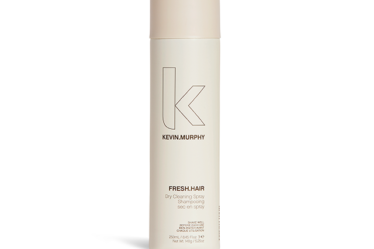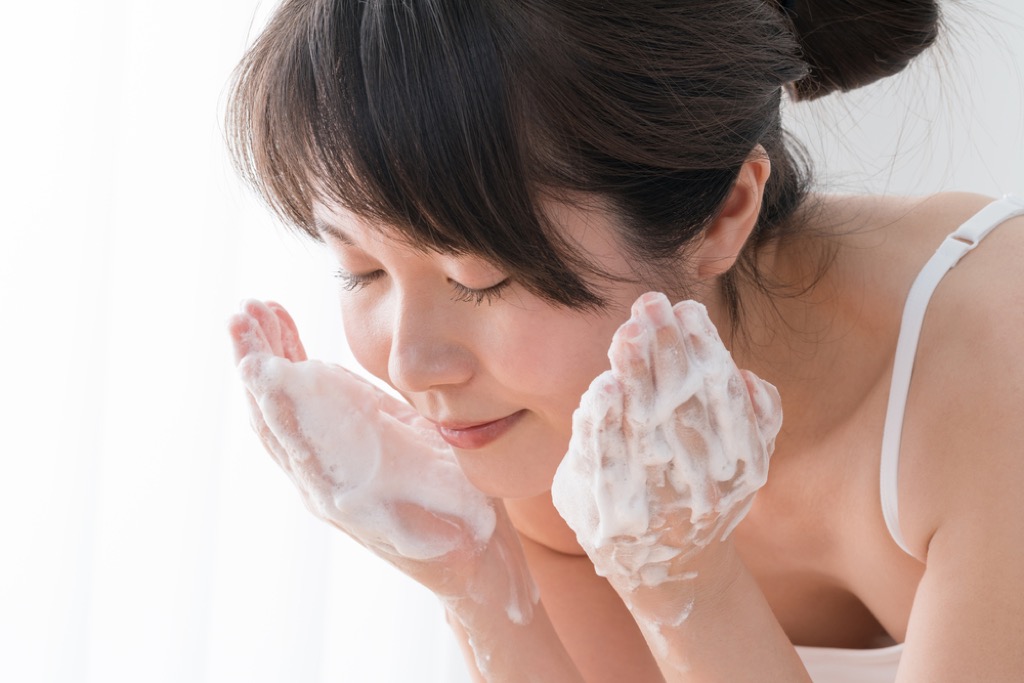
For many of us, washing our face is a habit as common as brushing our teeth or combing our hair. We do them every day—sometimes multiple times a day—and have probably followed the same routine since we were kids. So, it might come as a surprise to learn that there are facial cleansing mistakes that dermatologists say are oh-so-common, even among those who are otherwise well-versed in the skincare space. Think you’ve got everything down pat? Read on to discover how you’ve probably been washing your face wrong all along. Fix this issue, and you’ll have glowing skin—stat.
READ THIS NEXT: Don’t Use Mouthwash If You’re Taking These 2 Medications, Experts Warn.
Before you fix your face-washing mistakes, it’s important to master the basics. The first step is ensuring you’re washing your face the correct amount. “In general, you should wash your face twice a day,” says Emmanuel Loucas, MD, board-certified dermatologist and director of SINY Dermatology in New York. “Sometimes, [people] feel they have to scrub their face and wash it too often during the day.” Unfortunately, doing so strips your skin of its natural oils and moisture, which can cause dryness, redness, and irritation.
For those with sensitive skin, Loucas notes that even one wash per day will suffice. “Most of the pollutants and oil cosmetic build-up occurs during the day,” he says. If you wash your face in the evening, you can rinse it with lukewarm water in the morning and then proceed with your skincare routine, he says.
Next, you’ll want to choose an effective cleanser for your skin type. “Rosacea-, eczema-, and allergy-prone skin require a mild cleanser with soothing ingredients,” says Anna Guanche, MD, a board-certified dermatologist. According to Prevention, those ingredients include ceramides, glycerin, hyaluronic acid, and niacinamide. “Combination skin [requires] a foaming cleanser, and acne-prone skin [requires] a glycolic, salicylic or benzoyl peroxide-based cleanser.” Foaming cleansers are good for combination skin because they both remove oil and provide gentle exfoliation. Glycolic, salicylic, and benzoyl peroxide-based cleansers are especially good for acne as they lift oil, exfoliate, and unclog pores.
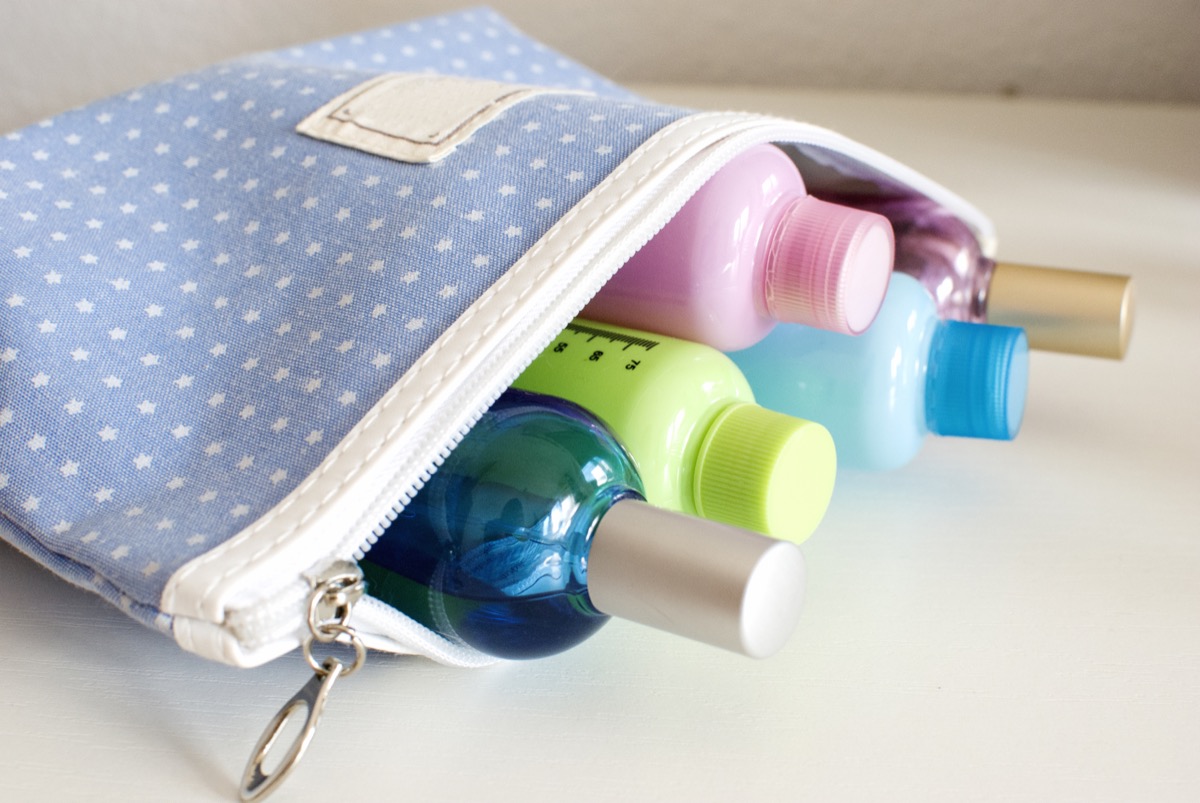
If there’s one thing dermatologists wish you would stop doing, it’s drying your freshly washed face with a bath towel. “Although a bath facial cloth might look clean, it can collect dirt, dust, makeup, oil, and dead skin cells,” says Anna Chacon, MD, a board-certified dermatologist. “This leads to an increased chance for them to act as breeding grounds for bacteria which will clog pores.” That, in turn, can lead to breakouts and blemishes.
Cheryl Rosen, MD, board-certified dermatologist and director of dermatology at BowTiedLife, brings up another con of this technique. “Bath towels are much rougher than facial towels, so they can actually cause irritation and skin damage,” she says. To avoid using a bath towel or hand towel, Chacon recommends using a fresh, soft kitchen paper towel instead. “I keep a roll on my vanity table for easy access,” she says. Similarly, Rosen suggests a soft, clean facial towel.
READ THIS NEXT: For more beauty advice delivered straight to your inbox, sign up for our daily newsletter.
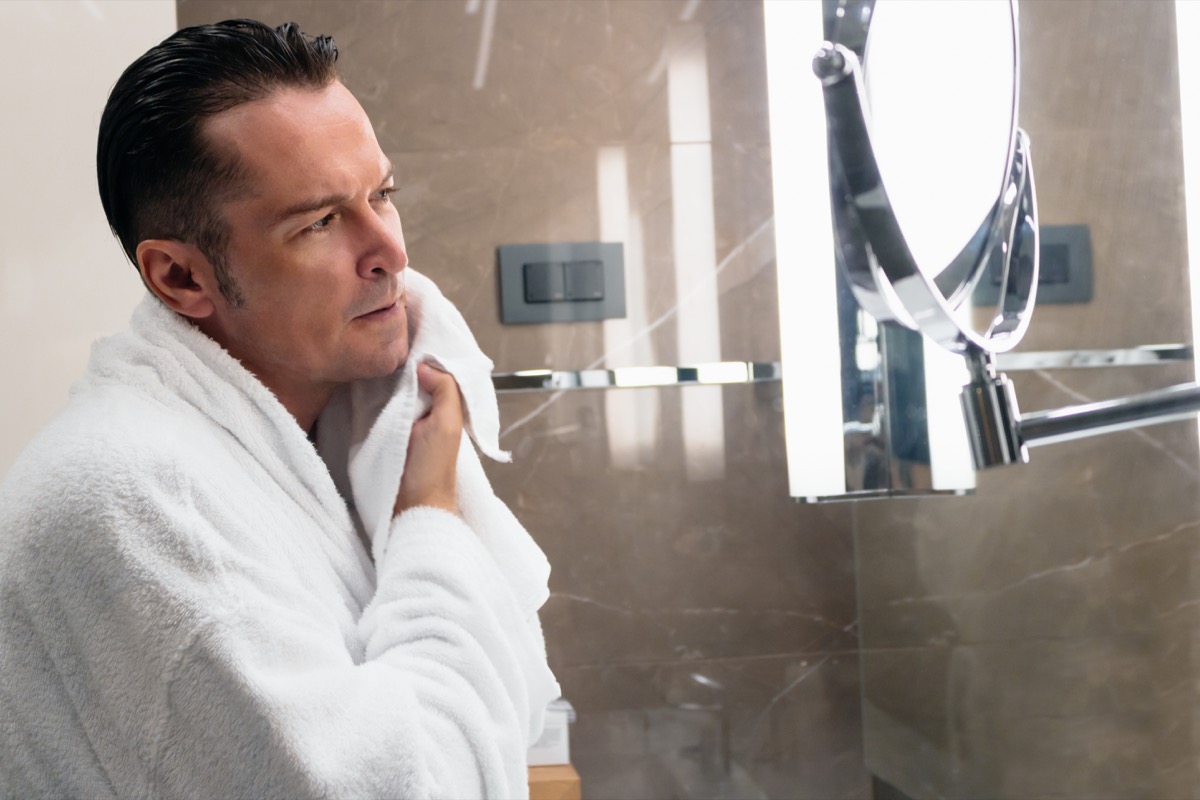
If your bath towels, hand towels, or facial towels are freshly washed, then they’re okay to use on your face. But if you do, use a gentle patting technique as opposed to a rubbing one. “Never dry your face aggressively,” says Loucas. “Gently wipe your face with a soft towel or, better yet, pat dry your face.” You’ll want to do this for the same reason you dab eye cream onto the delicate area around your eye: to prevent damage and irritation.
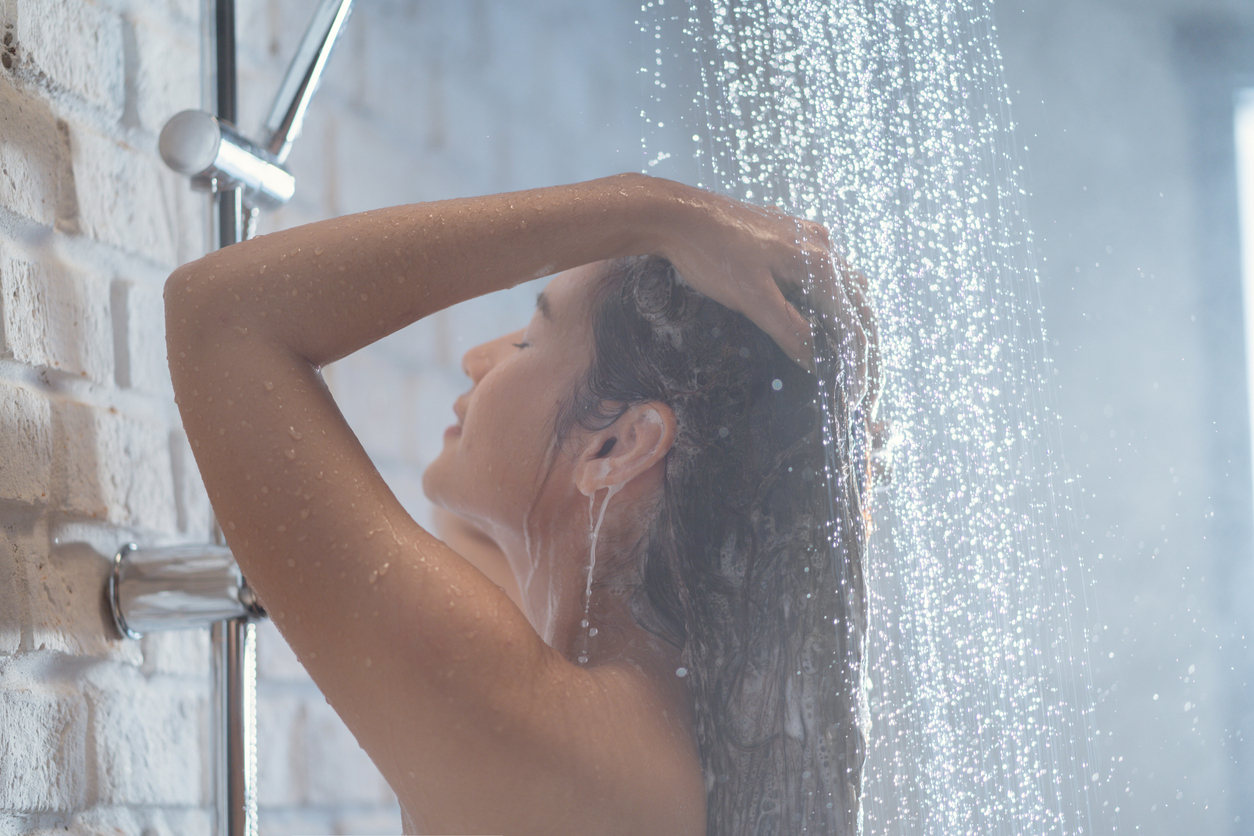
If you’ve ever wondered if it’s best to wash your skin in the shower or after the shower, you’re not alone. “If you shower at night, washing your face in the shower may be best,” says Loucas. “The steam and moisture from being in the shower can be trapped in your skin after pat drying your face and applying a moisturizer shortly after leaving the shower.” This also holds true if you shower in the morning.
The one thing you’ll want to keep in mind is washing your face after applying all of your other in-shower products, like shampoo and conditioner. This is because “some of the residues from the shampoo or conditioner may remain on the skin leading to irritated skin and/or clogged pores,” says Chacon.
READ THIS NEXT: If You Notice This on Your Face, Get Checked for Cancer.


